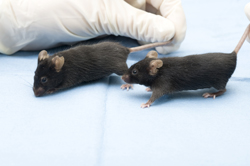Automated phenotyping platform for mice
Mouse phenotyping is required for the study of gene function and analysis of disease models. Usually it requires the transfer of mice from one cage to another followed by a number of metabolic and behavioural tests. As a result, mice could be highly stressed and poorly acclimatised, possibly causing their performance during testing to return associated variations in data. High-throughput phenotyping is a formidable undertaking with considerable logistical, technological and scientific hurdles to overcome. The 'Large-scale, high-throughput automated systems for phenotyping mouse models of human disease' (Phenoscale) project team created an automated phenotyping platform, in the form of three cages, to enable the automated metabolic and behavioural monitoring of small laboratory animals (Phenomaster). The first module measured the metabolic performance of small animals, such as oxygen consumption, energy expenditure and feeding behaviour. The second module recorded mouse activity on the running wheel, and the third was built to evaluate changes in the welfare and cognition of small animals. All data was recorded and processed in a user-friendly format, compatible with Windows 7. The instrument was tested and validated in different laboratories across Europe, and information related to the testing is available online (http://www.phenoscale.com/(opens in new window)). The project results were actively promoted among more than 2 000 scientists from both academic and commercial institutions. Use of the Phenoscale modules stands to significantly simplify high-throughput phenotyping of small animals in the future for more representative results and an increase in data.







